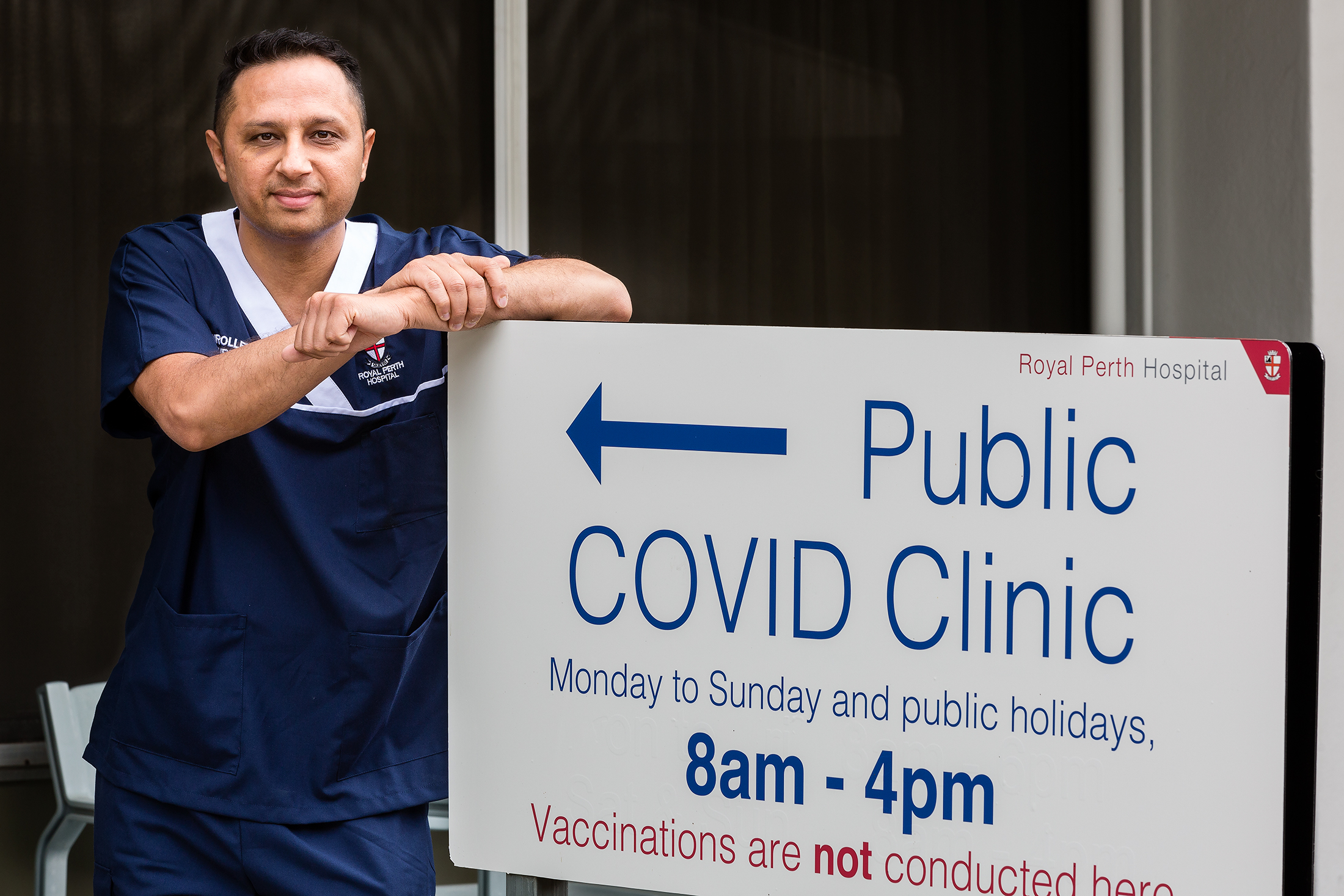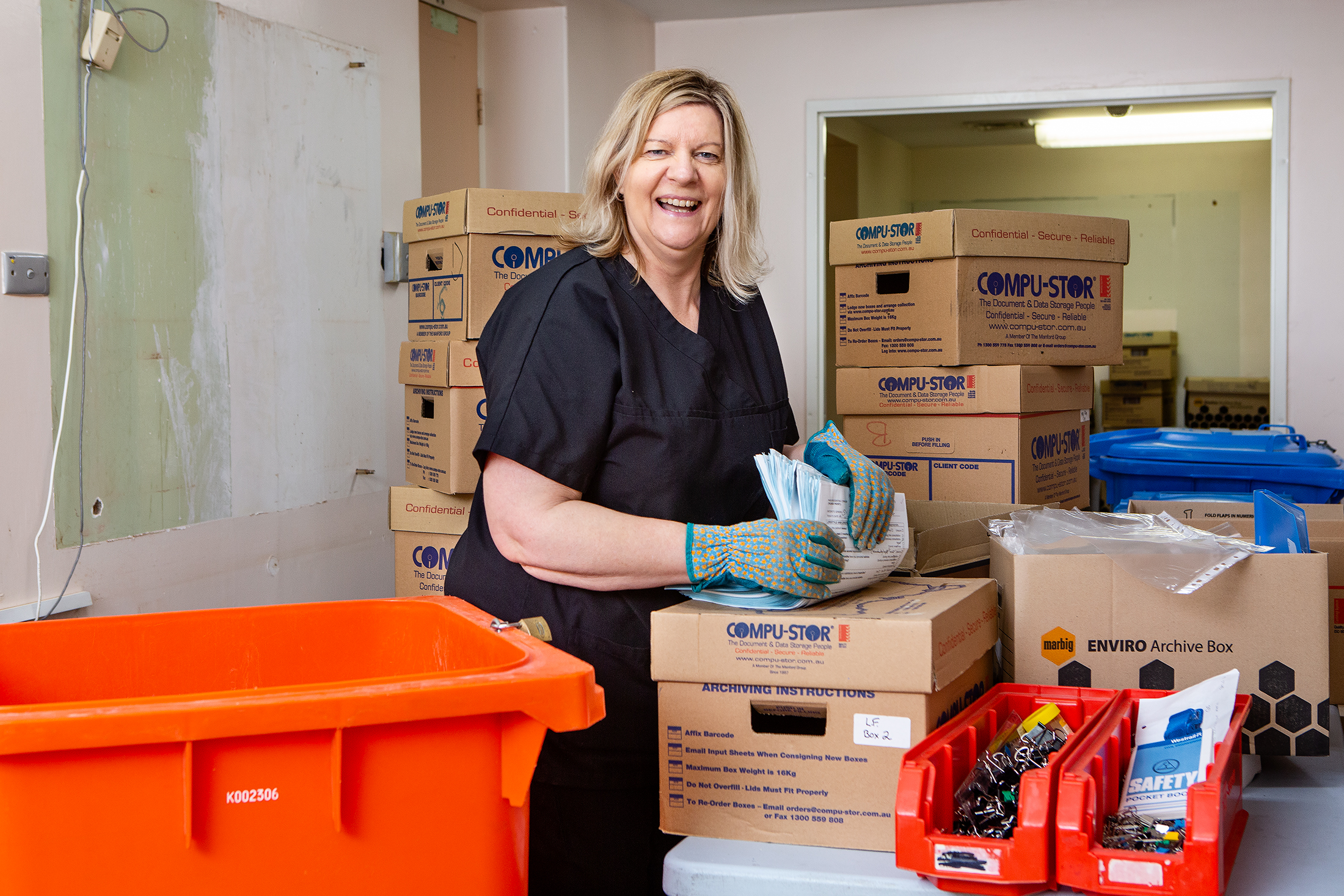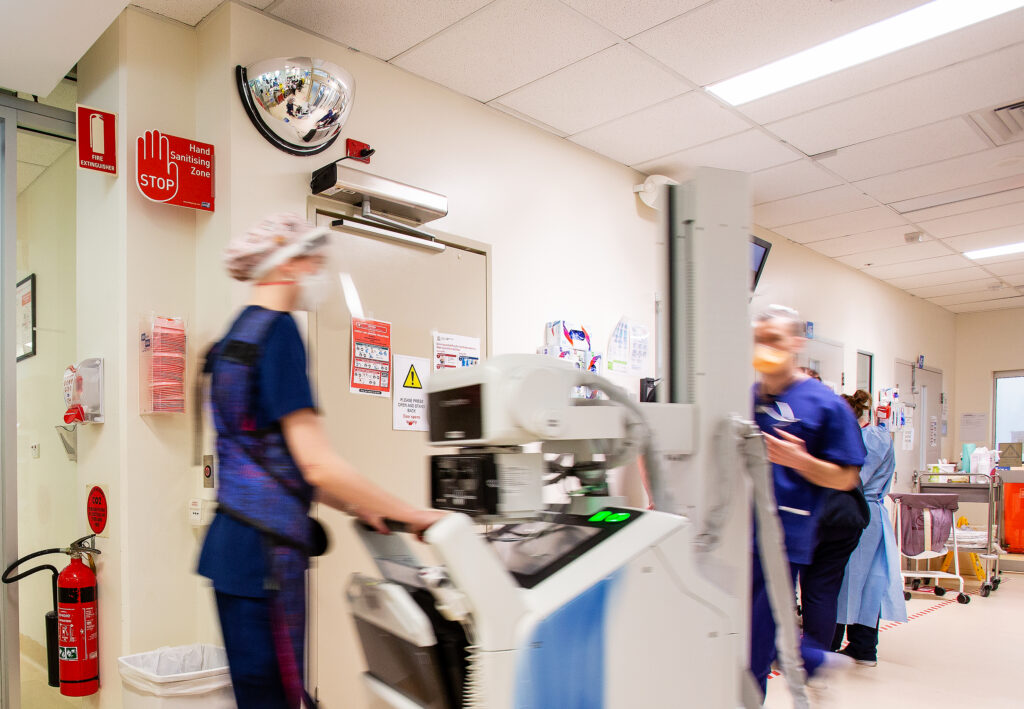COVID-19

For much of 2021-22, EMHS’ focus was on ensuring COVID readiness across our hospital sites.
Vaccinations, fit testing and PPE requirements were key priorities for staff preparations, while establishing thorough screening processes were central to EMHS’ overall efforts.
In readiness for the expected influx of COVID patients, frontline preparations were made with staff uplift in identified areas of need, and COVID Navigators and Leads were initiated. Wards were also reconfigured and, at RPH, a dedicated COVID ward was created.
COVID had a significant impact on our workforce with staff absences, due not just to staff who had contracted the virus, but also those forced to furlough due to close-contact requirements or care for isolating family members, particularly children.
A surge in staff absences placed significant pressure on our workforce, most of whom were already fatigued. A Workforce Availability Register and dashboard of staff suitable for voluntary deployment to other areas — if and when required — assisted during the surges.
Workforce wellbeing remained a key priority for EMHS throughout the year and development of a Staff wellbeing during COVID and beyond toolkit for managers was one of many initiatives designed to support staff during these challenging times.
COVID-19 Public Hospital Visitor Guidelines were released in line with WA Health’s COVID-19 Framework for System Alert and Response (SAR). All EMHS sites implemented the principles, which included the introduction of restricted access at hospital entry points.
The visitor screening process involved verifying vaccination status and ensuring no current symptoms or presence of COVID infection. In line with the SAR, the process later evolved to include RATs of all visitors and patients visiting high-risk areas.
During 2021-22, EMHS cared for:

COVID patients in ICU

COVID patients on ventilators

COVID clean helps spark joy
EMHS prepared for COVID on many fronts. At RPH, efforts were made to reduce the potential for COVID transmission in clinical areas caused by contact with contaminated surfaces.
The COVID Lean and Clean project involved determining what was going and what was staying — including items requiring more suitable accommodation.
The project ended up doing more than just reducing fomite and other occupational health and safety risks.
Wards were tidied, areas once used as dumping grounds for broken and damaged items were transformed into open, safe and functional spaces, and salvageable but unwanted items were distributed to grateful charities and organisations.
High-back chairs, recliners, crockery and nappies and sanitary products were among an assortment of items donated to Anglicare, while Australian Doctors for Africa accepted a consignment of surplus-to-needs stretcher beds.
Perth Zoo welcomed a big quantity of sharps bins, which could no longer be used by the hospital and the Southern Cross Men’s Shed was pleased to take possession of a metal lathe and cricket equipment.
Meanwhile, a glass desiccator joined RPH’s museum collection, while Curtin University re-housed an assortment of anatomical specimens.

